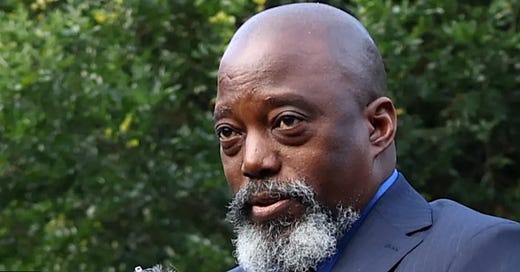DR Congo Bans Joseph Kabila's PPRD Party Over Alleged Ties to M23 Rebels
Former President Accused of Treason Amid Return to Conflict-Hit Goma
In a stunning political development, the Democratic Republic of Congo (DRC) has banned the People's Party for Reconstruction and Democracy (PPRD), the political party led by former President Joseph Kabila. The move comes amid allegations that Kabila has connections with the Rwandan-backed M23 rebel group, which has seized large swathes of territory in eastern Congo throughout 2025. The DRC government has escalated its response by charging Kabila with high treason and seizing his assets.
Government Justification: PPRD's "Ambiguous Attitude" to M23
The DRC's Ministry of the Interior released a statement justifying the ban on the PPRD, citing the party's "ambiguous attitude" toward the ongoing M23 occupation. The statement also pointed to Kabila's reported presence in Goma—a city currently under M23 control—suggesting he is "under the protection of the enemy."
Key Government Allegations:
PPRD is accused of indirect support for M23's occupation.
Kabila allegedly returned to Goma, signalling alignment with rebel forces.
All activities of the PPRD have been suspended indefinitely.
Joseph Kabila's Return: Symbolism and Strategy
After two years in South Africa, where he pursued academic studies, Joseph Kabila reportedly returned to the DRC in early April 2025. His re-entry through Goma, a strategic city held by M23 since January, has raised serious political questions.
Kabila's Academic Interlude:
In 2023, Kabila relocated to South Africa for further studies.
His doctoral thesis, focused on African geopolitics and relations with global powers like the US, China, and Russia, was approved at the University of Johannesburg in January 2024.
Kabila's Justification for Return:
In a written statement, Kabila stated that his return is motivated by a "desire to help resolve the worsening institutional and security crisis." He told Jeune Afrique that he intends to "play a role in seeking a solution after six years of complete retreat and one year in exile."
Accusations of Treason: Legal and Political Ramifications
The government has not only banned the PPRD but also charged Kabila with high treason. His properties have been ordered for seizure, signalling an unprecedented confrontation between the state and a former head of state.
M23 and Corneille Nangaa Connection:
Dr. Ben Radley, a political economist from the University of Bath, highlighted that Corneille Nangaa—now associated with the M23-aligned political platform, was formerly head of the electoral commission under Kabila. Nangaa's long-standing alliance with Kabila is seen as further evidence of implicit ties.
M23's Non-Denial:
When asked about Kabila's presence in Goma, an M23 spokesperson stated: "I don't see any problem with him being here," neither confirming nor denying the reports.
Who is Joseph Kabila? A Legacy of Power and Controversy
Joseph Kabila became president at the age of 29 after the assassination of his father, Laurent Kabila, in 2001. He remained in power for 18 years and was a central figure in Congolese politics until 2019.
Timeline of Kabila's Political Career:
2001: Became President following his father's assassination.
2006 & 2011: Won two elections.
2016: Refused to step down after his second term ended, citing delays in organising elections.
2019: Eventually handed over power to Felix Tshisekedi after a disputed election.
Post-Presidency Activities:
After leaving office, Kabila maintained a low political profile, officially leaving the country in 2023 to pursue higher education in South Africa.
PPRD's Silence: Tactical or Tumultuous?
Despite the gravity of the situation, the PPRD has not issued any public comment on the ban or the charges against its founder. Senior party officials have denied Kabila's presence in Goma, contradicting multiple reports and government claims.
Barbara Nzimbi's Statement:
Kabila's spokesperson Barbara Nzimbi stated via X (formerly Twitter) that Kabila would be addressing the nation "in the coming hours or days."
Geopolitical Implications: DRC, Rwanda, and the Great Lakes Region
The banning of Kabila's party and his alleged ties to M23 carry significant geopolitical weight. Rwanda's suspected support for M23 has already intensified regional tensions. Any proven link between Kabila and M23 could derail diplomatic efforts and peace negotiations across the Great Lakes region.
International Stakes:
African Union & UN: Monitoring the situation amid fears of escalation.
Regional Leaders: Concerned about this conflict's precedent for other post-presidency scenarios.
Conclusion: A Nation on Edge
The Democratic Republic of Congo is navigating one of its most precarious political moments in recent history. The banning of Joseph Kabila's PPRD and the treason charges against him are not just legal or political manoeuvres; they indicate a deeper, more systemic crisis gripping the nation. With eastern territories under rebel control, and former presidents accused of collusion, the stability of the DRC hangs in the balance. The nation, and the world, now await Kabila's next move.
SOURCE: BBC




